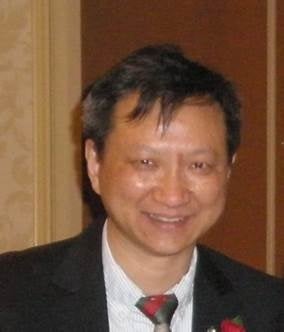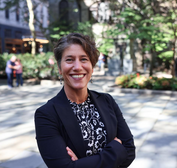FSU biotech ops degree to focus on business, finance
 Courtesy
Framingham State University professor Sunny Tam.
Courtesy
Framingham State University professor Sunny Tam.
Framingham State University will start a new master in business administration degree program next fall, including a concentration on biotechnology. The program, according to Sunny Tam, who coordinates the university’s PSM, or professional science master’s degree, program in biotechnology, is set up to take advantage of the growing biotech industry in the MetroWest and Boston areas. He and Steven Moysey, director of the Masters in Business Administration program, recently answered some of the WBJ’s questions on the new program by email.
Why was the new program created?
The new MBA with a concentration in biotechnology operations was the result of some out-of-the-box thinking by the directors of the PSM in biotechnology and the MBA program. There is a recognized need for biotech scientists and managers to have a good grasp on the business and finance side of the industry. This realization led to a series of conversations between Dr. Tam and Dr. Moysey, leading to an interdisciplinary collaboration to create the new program.
The industry has a clear presence in the MetroWest, including Framingham. Did that play a role?
Most certainly! According to a PricewaterhouseCoopers MoneyTree Report, approximately $1.3 billion was invested in Massachusetts biotechnology and medical device companies in 2011. Boston and San Francisco host the largest concentration of biotechnology activities in the world. Almost 50 percent of all US biotechnology investments are made in these locations, with 33 percent of the biotechnology jobs localized in these areas and 25 percent of US biotechnology companies located in one of these clusters. This makes Massachusetts one of the major drivers for global biotechnology innovation and development.
Employment growth in the Massachusetts biotechnology sector has continued to outpace the growth rate in all other economic sectors in the state and nation. Massachusetts biotechnology companies are expected to add 11,600 jobs between 2016 and 2022. This is a growth rate of 17 percent according to a 2017 report by MassBioEd—an educational foundation group of the state’s biotechnology group, MassBio. The projected growth in jobs will not just be focused on the traditional biotechnology hubs of Boston and Cambridge. The MassBioEd report indicates a significant growth potential in the North and MetroWest part of the state, along with the South and Cape areas. More than half of the new jobs are expected to come from biotechnology research and development, while bio-manufacturing employment is projected to see the biggest percentage increase (32 percent). The Central Massachusetts area stands to grow significantly in the bio-manufacturing area, as seen in the current operation of Sanofi in Framingham or AbbVie in Worcester.
Are co-op programs or internships being considered with those companies?
Currently, we have ongoing student internship collaborations with Sanofi at the Framingham site. Our students have gained valuable industry experience for their career growth. Some students have also benefited from the Massachusetts Life Sciences Center’s Internship Challenge, in order to work at young biotech companies leading to full time employment. We will continue to grow this industry/academic partnership so that an excellent work force will be available to meet the needs of our local expanding biotech and pharmaceutical industries.
What will the program at FSU look like?
We have taken eight of the core courses from the management MBA program, combined with four key biotechnology operations courses to create this new concentration. The biotech elements cover ethical implications of biotechnology, drug development from a process and regulatory perspective, business operations management for biotechnology, and management and leadership for biotechnology. This is a powerful combination of business, finance, and leadership. This curriculum will produce managers with a clear vision of an ideal biotech operation and the “soft skills” capable to handle of an ever evolving industry.
Manufacturing and biotech companies are often looking for more employees. How will this program fill that need?
By combining the core elements of the MBA with four select key elements of the Biotech PSM program, FSU can offer a highly competitive and desirable graduate track to a key market demographic looking for both practical industry training and management skills improvement. The biopharmaceutical industry is a highly regulated industry to protect the public interest. This new program will be uniquely emphasized on the regulatory practices of the industry, so that future managers from our program will be very knowledgeable in this area to serve the growing needs of the bio-manufacturing or bio-pharmaceutical companies.
We often hear about a lack of women in management and leadership roles in this industry. Will the program look to recruit women into the field?
When we look at the current enrollment of MBA students, women represent 60 percent of that student population at Framingham State University. For the Biotech PSM program, 54 percent are female students. We hope to continue attract very talented and highly motivated women to join and grow in our program. They will play significant roles in the leadership and growth of the industry.
What are the challenges facing biomanufacturers and how will the program address those challenges?
Much of the current unmet needs in biotechnology include finding qualified individuals who can direct financing and operations in a technically demanding environment. We will train the future managers to be rigorous in the implementation of quality systems to meet the stringent standards in bio-manufacturing, as this has been a continuous challenge for the industry. This practice will assure the highest quality in production and subsequent savings for the companies. Furthermore, our program will continue to educate the traditional scientific managers in the area of capital funding, business acquisition, company valuation or business development, so that they possess a “multi-disciplinary” global view of the industry, which is also another challenge for the industry. This new, innovative educational platform at FSU includes a deep understanding of the industry and will enable our students to be successful upon completion of their training.
This interview was conducted and edited by WBJ Staff Writer Zachary Comeau.













0 Comments